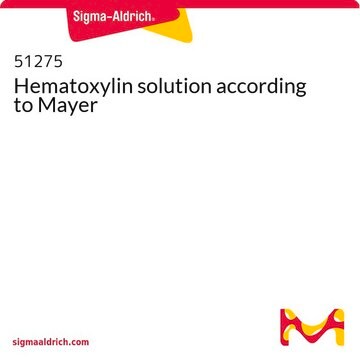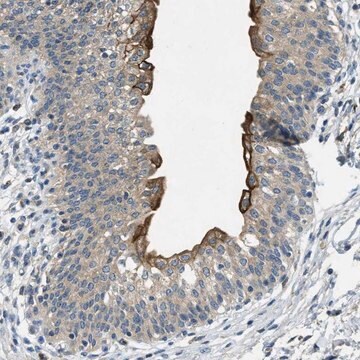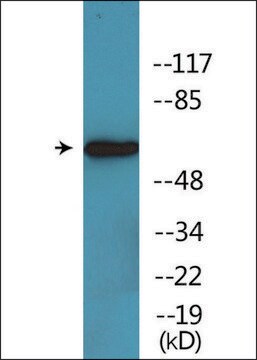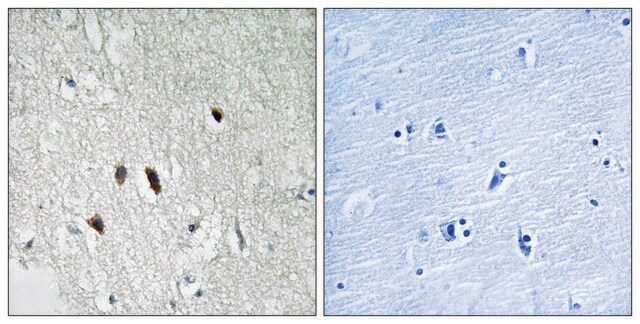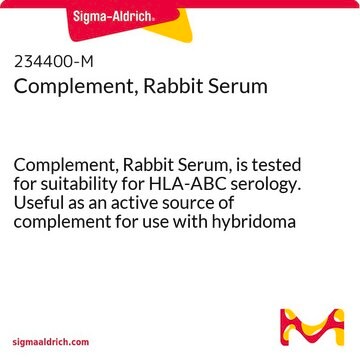SAB1404621
Monoclonal Anti-RIPK2, (C-terminal) antibody produced in mouse
clone 6F7, purified immunoglobulin, buffered aqueous solution
Synonym(s):
CARD3, CARDIAK, CCK, GIG30, RICK, RIP2
About This Item
Recommended Products
biological source
mouse
Quality Level
conjugate
unconjugated
antibody form
purified immunoglobulin
antibody product type
primary antibodies
clone
6F7, monoclonal
form
buffered aqueous solution
mol wt
antigen ~38.21 kDa
species reactivity
mouse, human, rat
technique(s)
capture ELISA: suitable
immunohistochemistry (formalin-fixed, paraffin-embedded sections): suitable
indirect ELISA: suitable
western blot: 1-5 μg/mL
isotype
IgG2aκ
NCBI accession no.
UniProt accession no.
shipped in
dry ice
storage temp.
−20°C
target post-translational modification
unmodified
Gene Information
human ... RIPK2(8767)
General description
Immunogen
Sequence
LQPGIAQQWIQSKREDIVNQMTEACLNQSLDALLSRDLIMKEDYELVSTKPTRTSKVRQLLDTTDIQGEEFAKVIVQKLKDNKQMGLQPYPEILVVSRSPSLNLLQNKSM
Application
Biochem/physiol Actions
Physical form
Disclaimer
Not finding the right product?
Try our Product Selector Tool.
Storage Class Code
10 - Combustible liquids
WGK
WGK 1
Flash Point(F)
Not applicable
Flash Point(C)
Not applicable
Choose from one of the most recent versions:
Certificates of Analysis (COA)
Don't see the Right Version?
If you require a particular version, you can look up a specific certificate by the Lot or Batch number.
Already Own This Product?
Find documentation for the products that you have recently purchased in the Document Library.
Our team of scientists has experience in all areas of research including Life Science, Material Science, Chemical Synthesis, Chromatography, Analytical and many others.
Contact Technical Service
